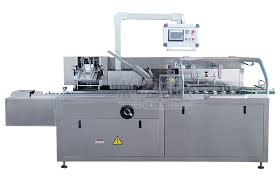Following a slew of technological advancements, today's tablet press machines are highly efficient. Consideration has also been made with the various advanced weight control systems which have since become automated. By verifying each tablet to be within particular weight parameters in an optimised way, these methods have been responsible for decreasing the rate of rejection by as much as 15%. Not only does it elevate end product quality, but also reduces material wastage thus creating higher value for manufacturers.
Aside from the weight management, realtime monitoring technology adoption has revolutionised tablet manufacturing process. The tablet press machines have sensors which are continuously gathering data on the compression force, and tablet hardness as it is produced. Through this info, you can make instantaneous changes in order to maintain the best conditions of generation and decrease downtimes. One of the biggest pharmaceutical firms confirmed a production efficiency hike by as much as 20% after using real-time monitoring systems.
Another of the major technical improvements include employing high-end software for predictive maintenance. There's software that predicts possible failures just by reading the data in machine performance. Balancing upkeep against non-production time allows companies to plan maintenance on their terms, avoiding costly and unexpected breakdowns while keeping a steady production schedule. Predictive maintenance can reduce maintenance costs by 30 percent and increase machine life by up to 25%.
Another thing that helps more with the efficiency are multi-tip tooling technology acceptance. It is a type of tooling that enables tablet press machines to produce more than one tablet per punch cycle, which means it can double or triple the output without increasing machine's overall footprint. This innovation has also allowed manufacturers to more easily achieve high-volume orders without the addition of machines (cutting capital costs.)

Also, there are high-speed tablet press machines have been made to meet the increased demand of pharmaceutical companies. Unlike conventional models which manufacture up to 1,000 fragments/hour, these machines have the capability of producing around 1 million tablets in an hour. Even when the processing is accelerated, there are independent control mechanisms and other innovative design features which offer no drawback to quality. Industry leader Roche installed a high-speed tablet press that saw their production capacity increase by 40%.
Yet another technological leap in technology which finds application through attaching servo motors into the tablets press machines. Thanks to the use of servo motors, you get a higher level of control over your tablet compression process and thus more consistent tablets. In addition, these motors can save up to 20% energy costs of the production thus have high performance and conserve more electricity resources.
Finally, the tablet press machine is user-friendly with improved facility interfaces and control systems. The touchscreen control and user-friendly software provide an interface that enables easy set-up of production parameters as well as easy monitoring. And being user-friendly by design, this reduces the time for new operators to be trained up on a platform cutting down further human error while increase overall efficiency.